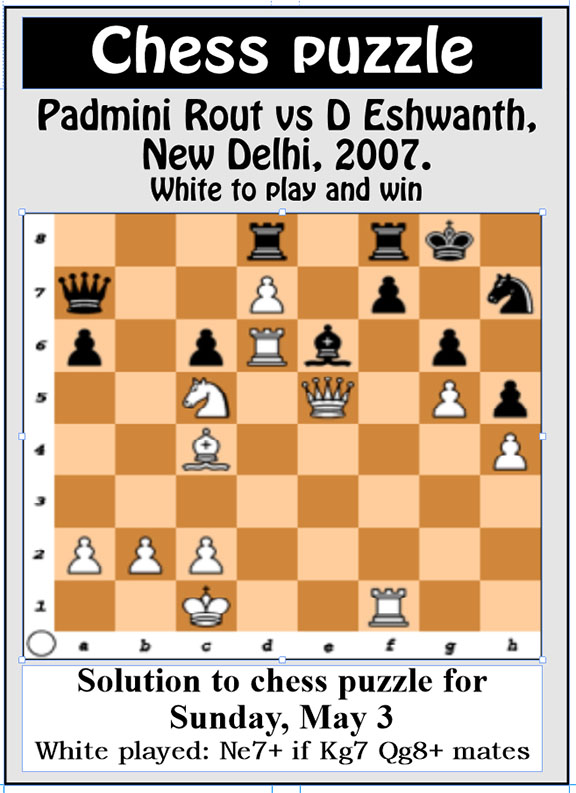British chess grandmaster and one time world championship title challenger, Nigel Short, wrote an article for the Dutch magazine New in Chess recently, titled ‘Vive la Difference’ which claimed, provocatively, that there are genetic reasons why men are more successful in chess than women. The article went viral, was picked up by international news services and generated a worldwide media storm. The storm which Short unleashed with his article, motivated one of India’s top chess players, international master Nisha Mohota to speak.
Nisha has taken the opportunity to describe the situation with women chess players in her country, outlining what can be done to alleviate difficulties which sometimes present themselves. In Guyana, women competitive chess players are few in number. Now, it’s almost nil! Whenever the Guyana Chess Federation hosts a tournament, the turnout of women players is disastrously inhibited. Over the years, that circumstance has been the norm. This is the reason why the column keeps highlighting the path which other developed countries are taking in relation to the integration of chess into schools as a subject. Meanwhile, we can listen to Nisha, and perhaps we can learn from her arguments. Nisha writes:
“What is it that stops young girls from taking up chess in our state and also in the rest of India? Why is it that in an open chess tournament the participation of female players can be counted on our fingers? Why do young, talented girls drop out of chess at a

